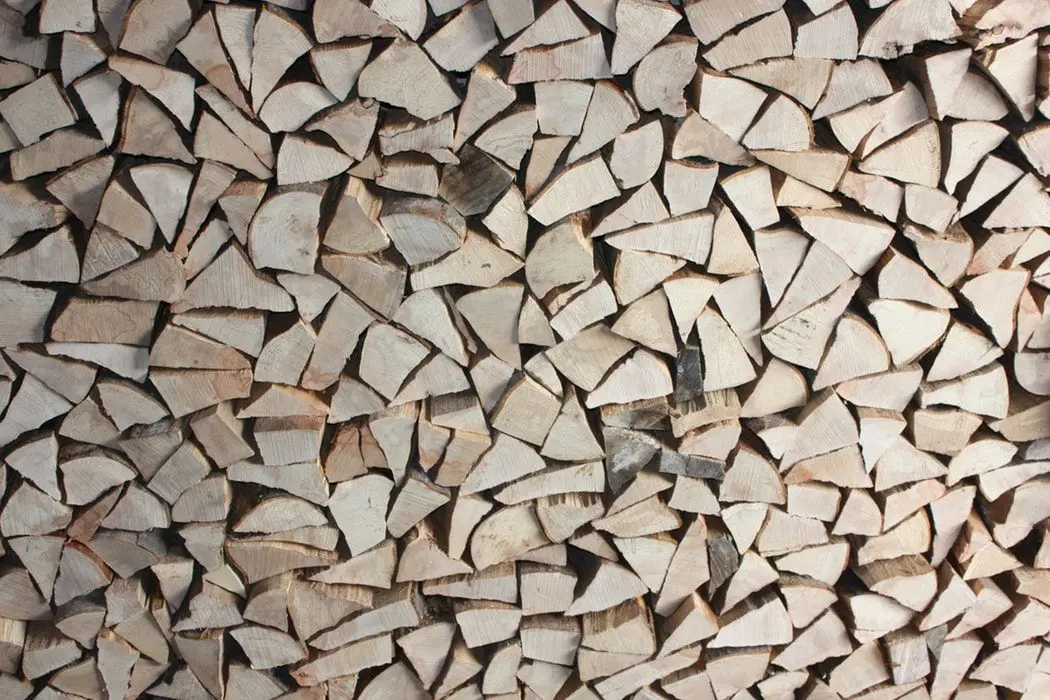Synthèse
Since 2020, the wood energy market has been experiencing various trends and developments. Wood energy, encompassing wood logs (firewood), wood pellets, woodchips, and wood charcoal, has solidified its position as the leading renewable energy source in France, accounting for nearly 40% of the country's renewable energy consumption. However, within the overall French energy mix, its contribution remains below 4%. The forest area, which is vital for wood energy sourcing, covers 28% of metropolitan France, and it continues to grow annually. Globally, the bioenergy sector, with wood as a solid biofuel, accounted for 85.7% of total bioenergy consumption. Wood fuel production grew by 0.4% annually, while wood pellets and charcoal have seen significant production increases of 115% and 45%, respectively, showcasing a clear trend towards more processed wood energy products.
Despite these global growth trends, the French market displays stability, with an average market value around €2 billion since 2013. The residential sector remains the primary consumer, driving over 70% of wood energy demand, mainly for heating purposes. Wood energy is the most popular renewable energy source in France, making up 36% of the country's renewable consumption, and it also represents a significant portion of the renewable sector's employment. However, the popularity of wood as an energy source has been decreasing, with household consumption dropping by 16%.
Economic aspects show that wood energy remains the cheapest form of energy in terms of kW/h compared to traditional sources, but prices have seen a slow increase. The price can vary considerably by region, with a stere of wood rangings from €54 to €86 depending on the area. In terms of production, France commercialised 38.1 million cubic meters of roundwood in 2019, with softwoods being the most harvested type.
The market is segmented into several key players, including forestry operations, wood energy specialists, and generalist retailers. Regulations, primarily concerning forest and wood policy, continue to shape the sector's development and align with national energy transition goals.
in the French Wood Energy Market
The French wood energy market is experiencing steady growth within the realm of renewable energy sources, representing a significant 40% of the nation's renewable energy consumption. Despite this, its overall share in France's energy sector remains modest, contributing to less than 4% of the total energy consumed. The majority of wood energy consumption, over 90%, is allocated for heating purposes, with the residential sector being the primary consumer, accounting for roughly 70% of the total wood energy usage.
The French market for wood energy includes various sources such as wood logs, wood pellets, woodchips, and wood charcoal, but the focus largely remains on wood logs and wood pellets due to their higher demand. The scope of forest cover in France is vast, spreading across 28% of the territory in metropolitan areas and growing annually by approximately 50 to 100 thousand hectares. Looking at the global context, wood is a dominant player in the bioenergy sector, making up 85.7% of total bioenergy consumption worldwide.
Although the wood fuel market has seen an increase in production by 8.3%, it is the wood pellets sector that has exhibited the most rapid growth, surging by 115%. Europe leads the production of wood pellets, accounting for over half of the global output.
In France, the average spending on energy has stabilized at around 1,500 euros per household annually. Energy from wood, however, constitutes a mere 2.77% of this expenditure, with electricity being the primary expense. Even though wood energy is the leading type of renewable energy, overall, it contributes only 11.6% to the country's energy mix.
The stability of the French wood energy market is also highlighted by its valuation of approximately 2 billion euros, with a growth of close to 10%. The sector supports a sizeable number of jobs and is second only to hydraulic energy in terms of employment within the renewable energy field. The growth of wood energy consumption in certain sectors, such as the industrial and energy sectors, has been notable, with the energy sector's share of spending on wood energy rising significantly from 12.4% to over 20%. Sales of residential wood-burning appliances have shifted over the years from built-in to free-standing fireplaces.
Key Players in the French Wood Energy Market
In the dynamic landscape of the French wood energy market, several key players stand out, each serving unique segments and driving the sector's growth within their respective domains. Let's explore some of the prominent companies that have marked their presence in this green industry.
Forestry Management and Harvesting
The Office National des Forêts (ONF) is a pivotal entity in the French wood energy market, primarily responsible for the management and exploitation of public forests. They play a crucial role in ensuring the sustainable harvesting of wood, which serves as the primary resource for wood energy products.
Alliance Forêts Bois takes on a similar role, dealing with the management and exploitation of forests, thus contributing significantly to the supply of raw materials for the wood energy sector. Alongside these organizations, companies like Smurfit Kappa Comptoir du Pin and Comptoir des bois de Brive focus on the production and supply of wood products, catering to both energy-related and other industrial uses of wood.
Firewood Specialists
France bois bûche represents a sector specializing in firewood (wood logs for heating), ensuring a steady supply of this traditional form of wood energy to households across France. As the preference for sustainable and renewable heat sources rises, providers like France bois bûche become increasingly important in meeting residential heating needs.
Wood Energy Specialists
Companies such as Badger, Biosylva, Cogra, and EO2 are specialists in wood energy, often focusing on processing and supplying refined wood energy products like wood pellets and wood chips, which are gaining popularity due to their convenience and high energy output.
Generalist Retailers
General retailers like Bois de chauffage, Leroy Merlin, and Carrefour, though diverse in their offerings, contribute to the accessibility of wood energy products by stocking a variety of options for consumers. They cater to a broader audience by providing wood logs, pellets, and other firewood products, alongside their vast selection of household and building supplies.
Each of these players, from forest managers to specialist providers and generalist retailers, plays an important role in the structure and functioning of the French wood energy market. Together, they not only assure the availability of wood energy products but also reinforce the market's positioning in France's renewable energy landscape.
à la compréhension de ce marché
Détail du contenu
 Informations
Informations
- Nombre de pages : 30 pages
- Format : Version digitale et PDF
- Dernière mise à jour : 27/09/2022
 Sommaire et extraits
Sommaire et extraits
1 Market overview
1.1 Definition and scope of study
The qualification of wood energy arises when wood is used for energy purposes, to produce heat, electricity or second-generation biofuels. Wood energy can be used as primary fuel but it can also be transformed industrially into by-products (solid, liquid or gaseous) that are also combustible.
Wood energy represents the the leading source of renewable energy in France (almost 40% of the total). However, despite its promising position within the renewable energy sector, its popularity is still not yet established within the overall energy sector of France. In fact, of the 245 toe (tonne of oil equivalent) of energy consumed in France in 2019, less than 4% came from wood energy.
Forest cover in France is extremely important for the wood energy in France, given how this is where the primary source of the product comes from. In fact, the forest covers 28% of the territory in metropolitan France (public and privately owned) and is growing by 75,000 hectares per year.
In terms of variations of wood energy sources, there are four main ones:
- Woold logs (firewood): Comes from raw roundwood and little processing is needed
- Wood pellets: Produced by compressing roundwood and typically comes from hardwood, although it may be a mix between hardwood and softwood
- Woodchips: Made from shredded wood
- Wood charcoal: Produced by heating the wood and removing all the water and oxygen from it
In this report, all of the sources will be mentioned, however, the scope will primarily cover wood logs (firewood) and wood pellets, given how they are the most significant in the French market.
The residential sector is by far the sector that consumes the most wood energy at 70% of the total consumption and therefore it is also the sector that contributes the most to the overall spending on this source of energy. On top of residential consumption, the main reason for consumption of wood energy is for heating purposes (over 90% of total wood energy consumption).
Beyond the residential heating which remains the main market outlet, the use of wood energy is also expanding industrial and district heating which have been progressing very rapidly since 2010.
Finally, the market for wood energy in France is extremely segmented, given how its operations are extremely dependant on local and regional operations.
 Liste des graphiques
Liste des graphiques
- Consommation d'énergie provenant de sources renouvelables
- Répartition de la consommation de bioénergie par source
- Production mondiale de bois de chauffage
- Distribution de la production mondiale de bois de chauffage par continent
- Production mondiale de granulés de bois
Toutes nos études sont disponible en ligne et en PDF
Nous vous proposons de consulter un exemple de notre travail d'étude sur un autre marché !
Dernières actualités
Entreprises citées dans cette étude
Cette étude contient un panorama complet des entreprises du marché avec les derniers chiffres et actualités de chaque entreprise :
 Choisir cette étude c'est :
Choisir cette étude c'est :
Accéder à plus de 35 heures de travail
Nos études sont le résultat de plus de 35 heures de recherches et d'analyses. Utiliser nos études vous permet de consacrer plus de temps et de valeur ajoutée à vos projets.
Profiter de 6 années d'expérience et de plus de 1500 études sectorielles déjà produites
Notre expertise nous permet de produire des études complètes dans tous les secteurs, y compris des marchés de niche ou naissants.
Notre savoir-faire et notre méthodologie nous permet de produire des études avec un rapport qualité-prix unique
Accéder à plusieurs milliers d'articles et données payantes
Businesscoot a accès à l'ensemble de la presse économique payante ainsi qu'à des bases de données exclusives pour réaliser ses études de marché (+ 30 000 articles et sources privées).
Afin d'enrichir nos études, nos analystes utilisent également des indicateurs web (semrush, trends…) pour identifier les tendances sur un marché et les stratégies des entreprises. (Consulter nos sources payantes)
Un accompagnement garanti après votre achat
Une équipe dédiée au service après-vente, pour vous garantir un niveau de satisfaction élevé. (+33) 9 70 46 55 00
Un format digital pensé pour nos utilisateurs
Vous accédez à un PDF mais aussi à une version digitale pensée pour nos clients. Cette version vous permet d’accéder aux sources, aux données au format Excel et aux graphiques. Le contenu de l'étude peut ainsi être facilement récupéré et adapté pour vos supports.
 Nos offres :
Nos offres :
the wood energy market | France
- Quels sont les chiffres sur la taille et la croissance du marché ?
- Quels leviers tirent la croissance du marché et leur évolution ?
- Quel est le positionnement des entreprises sur la chaine de valeur ?
- Comment se différencient les entreprises du marché ?
- Données issues de plusieurs dizaines de bases de données
Pack 5 études (-15%) France
- 5 études au prix de 75,6€HT par étude à choisir parmi nos 800 titres sur le catalogue France pendant 12 mois
- Conservez -15% sur les études supplémentaires achetées
- Choisissez le remboursement des crédits non consommés au terme des 12 mois (durée du pack)
Consultez les conditions du pack et de remboursement des crédits non consommés.
- 26/11/2023 - Ajout des informations de l'entreprise Ryam
- 19/10/2023 - Ajout des informations de l'entreprise EC Bioénergie
- 21/06/2023 - Ajout des informations de l'entreprise Leon Grosse
- 14/04/2023 - Ajout des informations de l'entreprise Soler Green
- 26/02/2023 - Mise à jour des données financières de l'entreprise Leroy Merlin France (Adeo)





 Poujoulat se lance dans les réseaux de ventilation - 11/02/2024
Poujoulat se lance dans les réseaux de ventilation - 11/02/2024
 Dans les Landes, la bioraffinerie de Ryam fait feu de tout bois - 25/11/2023
Dans les Landes, la bioraffinerie de Ryam fait feu de tout bois - 25/11/2023
 Volkswagen détrône Leroy Merlin au classement des sociétés étrangères en Russie. - 03/10/2023
Volkswagen détrône Leroy Merlin au classement des sociétés étrangères en Russie. - 03/10/2023





















